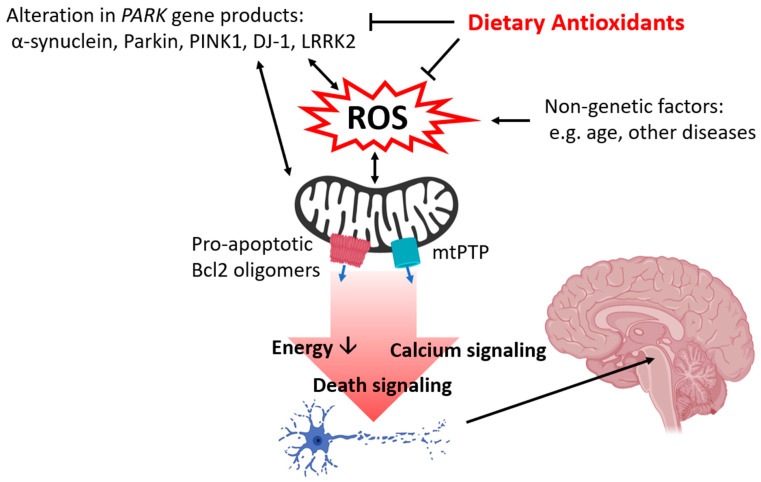Figure 1.
Summary of the protective roles of dietary antioxidants in Parkinson’s disease (PD). Both genetic and nongenetic factors contribute to the accumulation of oxidative stress by enhancing ROS production and impairing cellular antioxidant defense systems. Oxidative stress damages intracellular organelles, most notably the mitochondria, impairing neuronal energy metabolism and thus hindering the energy-demanding process in the brain including neurotransmission and neuritogenesis. Mitochondrial dysfunction primes apoptosis, calcium release, and opening of mtPTP which leads to the death of neurons, including the specific dopaminergic population of the SNpc which produces the signs and symptoms of PD. Illustration by BioRender.

